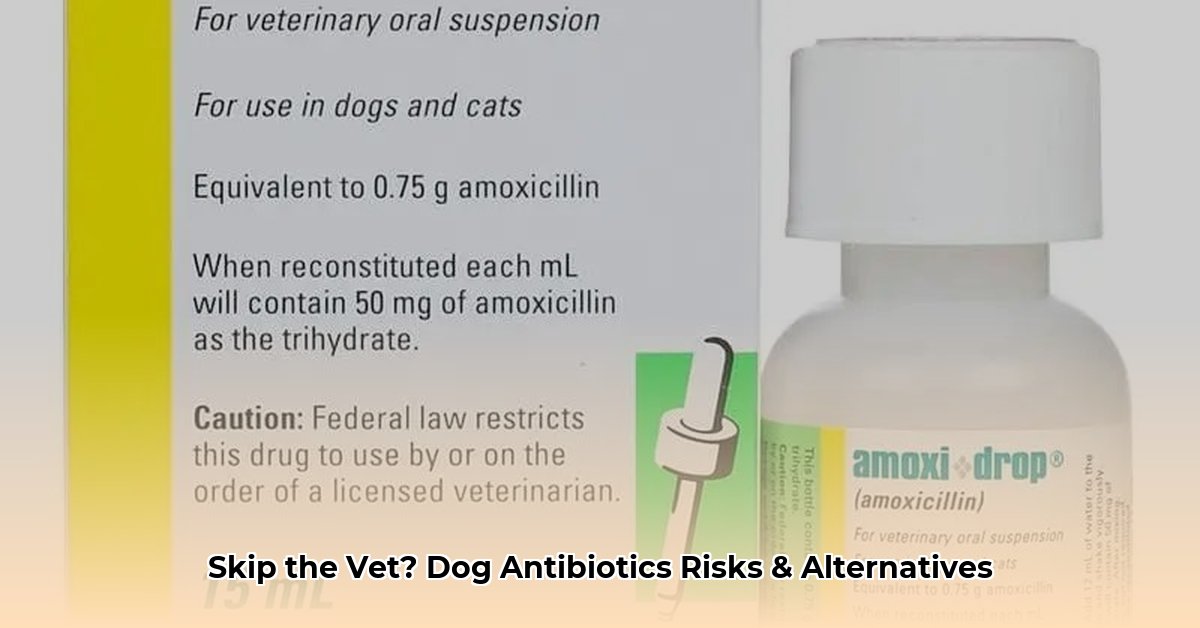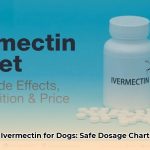Worried about your pup’s health? It’s understandable to be concerned when your furry friend isn’t feeling their best. This guide provides essential information about dog antibiotics, natural remedies, and when professional veterinary care is absolutely crucial.
Debunking the DIY Antibiotics Myth
You might be tempted to give your dog antibiotics without a prescription, especially if you’ve seen those medications work wonders before. However, using antibiotics without veterinary guidance is risky and potentially harmful. It’s like trying to fix a leaky faucet without knowing what’s causing the leak – you might make things worse!
Here’s why DIY antibiotics for dogs are a bad idea:
- Misdiagnosis: You could mistake a viral infection (which antibiotics won’t treat) for a bacterial one. This delays proper treatment and could worsen your dog’s condition.
- Antibiotic Resistance: Using the wrong antibiotic or dosage can contribute to antibiotic-resistant “superbugs.” This makes future infections, both in your dog and potentially in humans, much harder to treat.
- Adverse Reactions: Dogs can have allergic reactions or other side effects to certain antibiotics. A veterinarian knows which antibiotic is safest and most effective for your dog’s specific situation.
- Underlying Conditions: What seems like a simple infection might be a symptom of a more serious underlying health problem that requires professional diagnosis and treatment.
Natural Remedies: Soothing Minor Ailments
For minor scrapes, skin irritations, or mild ear discomfort, natural remedies might offer some relief. Think of these as temporary soothing measures, not cures. They’re like offering a warm compress – comforting, but not a solution for the underlying issue. Always consult with your vet before trying any home remedies, especially if your dog has allergies or other health conditions.
Here are a few options (Vet consultation advised):
- Colloidal Silver (Diluted): May help with minor skin infections, but excessive use can discolor skin.
- Manuka Honey (Medical Grade): May soothe minor wounds and skin irritations.
- Coconut Oil: Can moisturize dry skin and potentially offer some antimicrobial benefits. Limit ingestion to avoid stomach upset.
- Apple Cider Vinegar (Diluted): May help with some skin and yeast infections, but never apply to open wounds.
- Chamomile/Calendula Tea (Cooled): May soothe irritated skin as a gentle rinse or compress.
Applying Home Remedies Safely:
- Vet Consultation: Always check with your vet first.
- Patch Test: Apply a small amount to a small area of skin and wait 24 hours to check for reactions.
- Gentle Application: Avoid rubbing or causing further irritation.
- Monitor Closely: Watch for changes in your dog’s condition.
- No Improvement? See the Vet: If symptoms worsen or don’t improve within 24-48 hours, seek professional care.
When to Seek Veterinary Care: Don’t Delay!
Just as you wouldn’t self-treat a broken bone, certain conditions in dogs require immediate professional attention. If your dog shows any of the following symptoms, contact your veterinarian immediately:
- Lethargy or weakness
- Loss of appetite
- Difficulty breathing
- Pus-filled wounds or discharge
- Persistent vomiting or diarrhea
- Worsening condition
- Deep or puncture wounds
- Eye infections (redness, discharge, squinting)
- High fever
These are serious warning signs that shouldn’t be ignored. Prompt veterinary care is crucial for accurate diagnosis and effective treatment.
Affordable Veterinary Care: Options & Resources
We understand that veterinary costs can be a concern. However, delaying necessary treatment can lead to more serious (and costly) problems down the line. Explore these options:
- Low-Cost Clinics: Many communities have low-cost or sliding-scale veterinary clinics. Contact your local humane society or animal shelter for recommendations.
- Payment Plans: Talk to your veterinarian about potential payment plans or options.
- Pet Insurance: Consider pet insurance to help manage unexpected veterinary expenses.
- Financial Aid: Some organizations offer financial assistance for veterinary care. The American Veterinary Medical Association (AVMA) and the American Animal Hospital Association (AAHA) are good starting points for finding resources.
Prevention: Your Dog’s Best Defense
The best way to minimize health problems is through proactive preventative care. This includes:
- Balanced Diet: Provide nutritious, high-quality dog food appropriate for your dog’s age and breed.
- Regular Exercise: Keep your dog active with appropriate exercise to maintain a healthy weight and strong immune system.
- Routine Vet Checkups: Regular checkups allow your veterinarian to detect potential problems early and provide preventative care (vaccinations, parasite prevention).
- Dental Care: Dental disease can lead to other health issues. Regular brushing and professional dental cleanings are essential.
Your Role as a Responsible Pet Owner
You are your dog’s advocate. By prioritizing preventative care, recognizing warning signs, and seeking professional veterinary guidance when needed, you can ensure your furry friend receives the best possible care and enjoys a long, healthy, and happy life.
[!NOTE]
This information is for general knowledge and does not replace professional veterinary advice. Always consult with your veterinarian for diagnosis and treatment recommendations specific to your dog’s health.
- Good Mindfulness Books For A Calmer, Happier Everyday Life - February 4, 2026
- Recommended Meditation Books for Beginners and Experienced Practitioners - February 3, 2026
- Great Mindfulness Books to Guide Your Journey to Inner Peace - February 2, 2026
















